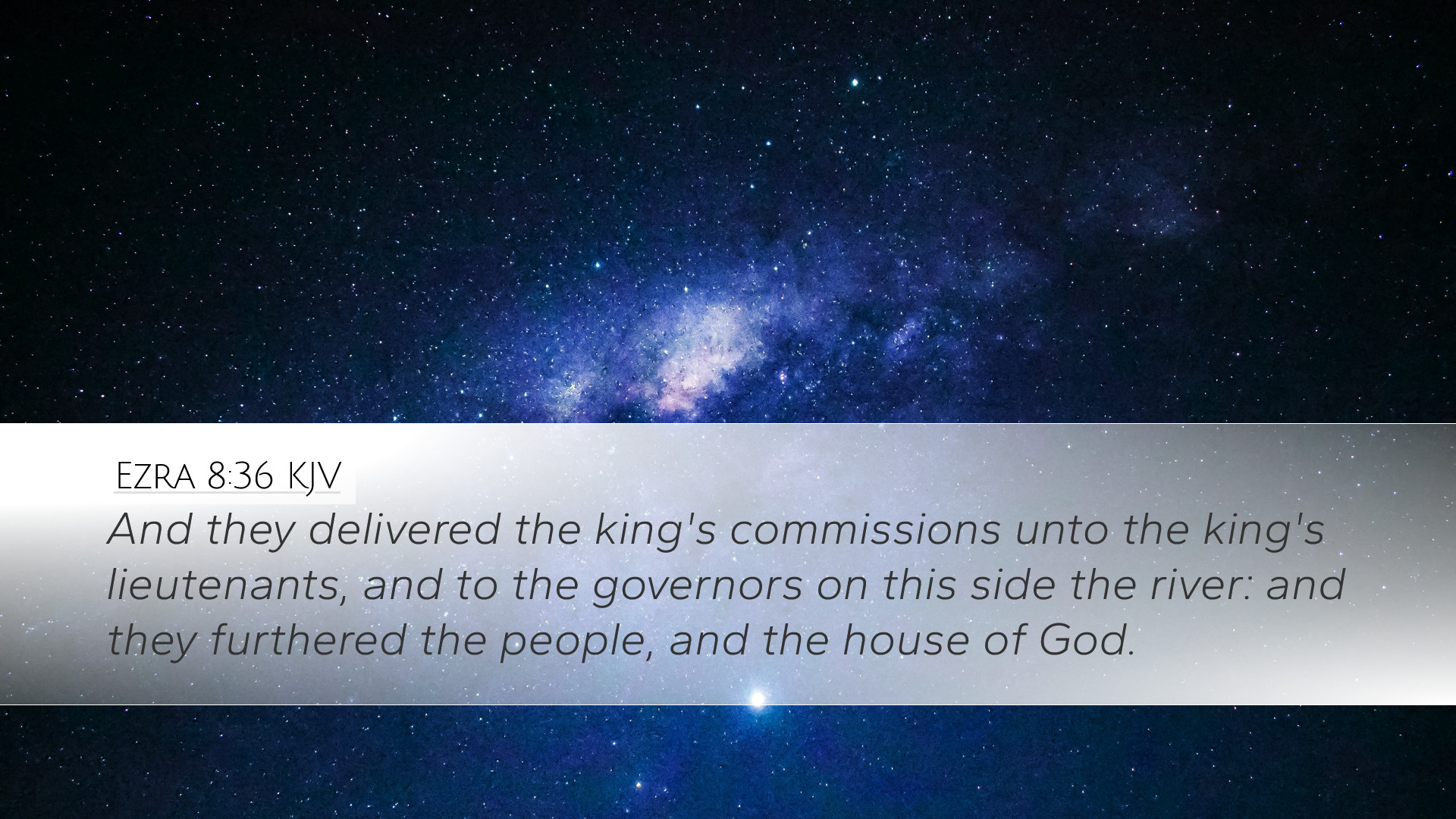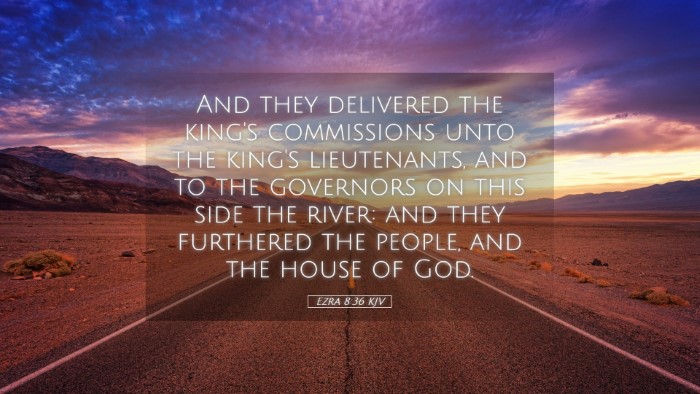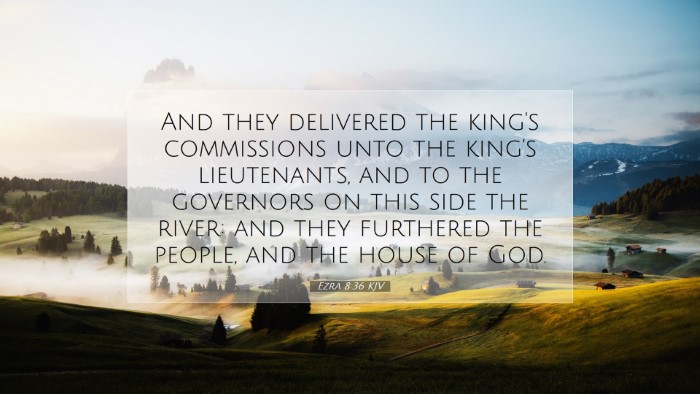Ezra 8:36 Commentary
Ezra 8:36 states: "And they delivered the king’s commissions unto the king’s lieutenants, and to the governors on this side the river: and they furthered the people, and the house of God." This verse encapsulates a significant moment in the return of the exiles and the restoration of worship in Jerusalem. Commentaries by esteemed theologians provide insights into the implications of this verse for understanding governance, authority, and divine purpose in the context of biblical history.
1. Context and Background
The book of Ezra details the return of the Jewish exiles from Babylon and the subsequent efforts to rebuild the temple and restore worship. Ezra 8 focuses on Ezra's journey back to Jerusalem, highlighting the logistics, the delegation of authority, and the spiritual preparation of the returning exiles. Matthew Henry emphasizes the importance of the leaders in this exodus and their roles in guiding the people in accordance with God's will.
Historical Significance
The involvement of the king's commissions illustrates how God used Persian authority to facilitate the restoration of His people. Albert Barnes notes that Ezra’s ability to secure letters of support from Artaxerxes signifies God's providence and favor. These letters were not merely bureaucratic documents; they represented divine backing for the rebuilding of the temple.
2. Analysis of Key Themes
This verse can be unpacked through several critical themes relevant to theology and church leadership today:
-
Divine Authority:
Ezra's actions in delivering the king's commissions show the intersection of earthly kingdoms and God's providence. Adam Clarke explains that this reflects a deeper truth: God uses governments, even those outside of His covenant people, to accomplish His purposes.
-
Spiritual Governance:
The "lieutenants" and "governors" mentioned in the verse signify a structured leadership model. Matthew Henry reflects on how God’s authority operates through human agents, affording them the responsibility of governance not just for civil order but for spiritual well-being as well.
-
Community and Restoration:
The term "furthered the people" underscores the collective nature of the return to Jerusalem. Barnes points out that this is a communal effort aligning with the divine mission to restore the worship of God in the temple, emphasizing that the church must work together to fulfill God's mission.
-
Mission and Purpose:
Ezra's commitment to delivering these commissions reflects a clear and purposeful mission. The passage illustrates how spiritual leaders today must align their missions with divine directives, ensuring that their efforts contribute towards the broader goals of God's kingdom.
3. Ezra as a Model Leader
Ezra exemplifies qualities that modern spiritual leaders aspire to. His dedication to God's law and his ability to navigate secular authority for the benefit of God's people serve as a profound lesson. Clarke emphasizes Ezra's role not just as a priest but as a skilled leader capable of influencing a vast bureaucracy to achieve God’s ends.
Leadership Insights
-
Preparation and Prayer:
Ezra undertook a journey that was both practical and spiritual. His example teaches the importance of preparation coupled with prayer, reflecting a dependence on God for success and favor in all endeavors.
-
Communication:
Effectively communicating with authorities is crucial. Ezra's delivery of the king's letters highlights the importance of clear communication in leadership, especially when dealing with external governance.
-
Inclusiveness:
By furthering both the people and the house of God, Ezra modeled an inclusive approach that seeks the welfare of both God’s people and their physical resources.
4. Application for Today
As communities of faith navigate complex societal landscapes, the themes from Ezra 8:36 are immensely relevant:
-
Interdependence:
Just as Ezra relied on the support of the Persian authorities, today’s church must recognize and engage with the broader societal structures for the sake of the gospel.
-
Spiritual Commitment:
Pastors and leaders are called to intercede and commit the church’s mission to prayer, seeking divine clarity as they carry out their roles.
-
Collaborative Efforts:
Churches must foster cooperative relationships within their communities, much like Ezra worked with various leaders, to enrich their mission.
5. Conclusion
Ezra 8:36 is a testament to God's sovereignty in both spiritual and secular realms. The insights from historical commentaries point to a broader understanding of how leaders are to navigate their responsibilities with grace and faithfulness. As biblical scholars, pastors, and students continue to study this passage, may they glean motivation and direction for their own contexts, reflecting on the interplay of divine authority and human agency in the mission of God’s kingdom.


